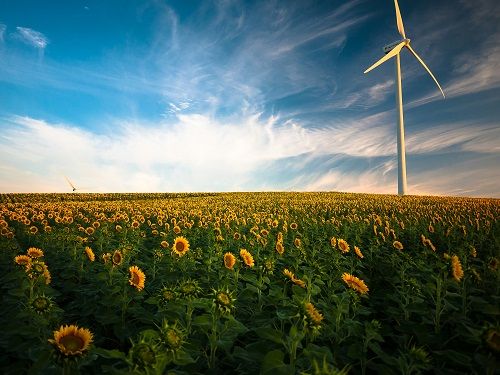German politicians don’t want to be seen to support certain policies, even when these play in their own interests. This affects the renewable energy sector more than many other policy areas. "Of course, it sounds nicer for some people to cite climate protection and the preservation of the livelihoods of future generations as the sole reason for the energy transition," says Markus W. Voigt, CEO of the aream Group. "But tangible strategic and financial interests are at least as important."
Both have to do above all with reducing dependencies. "Around 75 percent of Germany's total energy requirements are currently imported," says Voigt. "This mainly involves the import of oil, gas and coal, but also electricity." The restructuring of the energy industry will significantly reduce these imports. Forecasts vary widely, but show a clear downward trend. The Agora Energiewende think tank, for example, assumes that around 41% of total energy requirements will still have to be imported by 2045, while the German Energy Agency predicts only 18%.
"Regardless of which forecast is more accurate, both show a significant reduction in dependency on other countries," says Voigt. "This is a good and important step, as it strengthens Germany's position internationally and leaves more room to assert other interests." This is because greater energy independence means that there is less need to take difficult partners into consideration when making decisions.
However, in addition to the gain in geopolitical room for maneuver, there are also strong financial interests in favor of a rapid restructuring of the energy industry. "There are at least two sides to this," says Voigt: "In future, less money will have to be paid abroad to buy energy, which will then be available for investment at home."
On the other hand, there are already many international players who are making these large investments in infrastructure and generating a high return over time. "Large investments have been necessary, especially in the oil and gas producing countries. This is now paying off for the countries and they have enough financial leeway to develop their cities on a large scale or to drive forward the healthcare system, for example," says Voigt.
"Thanks to the energy transition, it now looks like more and more investments are being made in Germany and Europe - with returns in the billions over the coming years and decades. The state and the government would do well to promote these investments. It may be expensive today, but it will pay off all the more later on," says Voigt. "But it would be at least as good to emphasize these long-term benefits more."
This is because Germany, in view of its pioneering role, will benefit earlier than others from the returns on investment and the resulting significant reduction in energy imports - to the benefit of the country as a whole. "There is hardly a better way to provide for future generations," says Voigt. "This is because the sustainability aspect meets perfectly from both an ecological and financial perspective and reinforces each other."
PRESSEKONTAKT:
Leandra Kiebach
T: +49 (0)211 30 20 60 4-2
E: lk@aream.de
